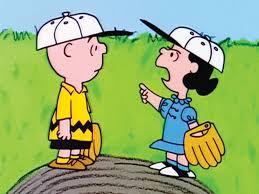
Paris: How Faith Helps To Cope
Readers who don’t know me can tell by my picture at www.skepticfaith.blogspot.com, as well as by what I write, that I’m no spring chicken. Although I’m blessed with good health and few family or other worries, like all people my age I’m coping with aging.
Sometimes I can’t help but laugh when I look in the mirror. Is that really me? Why do I have almost as much hair in my nose as I do on my head? Why do I have so much trouble opening jars and packages? Why is it that so often the thing I’m trying to remember lies just beyond my mental reach?
But are my aging problems any more onerous than what young people have to deal with? More than the awkwardness of being a teenager, the insecurity of being a young adult, the incertitude of being a young parent or parent of teenagers? Having been all those, I don’t think so.
And my life has been a walk in the park compared to that of millions of people around the world. In La Paz, Bolivia, I watched kids and adults poke through a garbage pile for something to eat. In Mexico City, I walked through the miserable shacks of squatters in the middle of the city’s enormous dump. In El Salvador, I held the hand of an elderly blind woman in a sweltering hut.
I know that wherever you live or whatever your circumstances, learning to cope with life, and death, is a lifelong challenge.
The Suffering in Paris
The carnage inflicted on the people of Paris naturally results in such reflection. We hear the numbers of killed and wounded but can only imagine the suffering of their families and friends, the hardship that those deaths and injuries have brought into their lives, and the challenge of coping.
But Paris is are only the tip of the iceberg when it comes to victims of violence worldwide, much of it, unfortunately, done in the name of religion.
On the same day that Paris was attacked, according to an essay on National Public Radio by Michel Martin, a bomb during midday prayers at a mosque in Yemen killed several worshipers and injured others. Also on that day, ISIS claimed responsibility for a suicide attack at a funeral in Baghdad that killed at least 18 people and wounded more than 40.
On the day before, ISIS also took responsibility for a double attack in Beirut that killed at least 45 people and wounded 200 others. A bicycle loaded with explosives blew up on a busy street, and when people rushed to help, a second suicide bomber’s explosives went off, killing and wounding yet more people. And on the day before that, a terrorist attack killed nine people in Egypt’s Sinai. Most of the victims were members of a single family, including two children under three years old.
Closer to home several days ago, the decapitated body of a man thought to be involved in the drug wars along our border with Mexico was found floating near South Padre Island, among the tens of thousands of people killed drug-related violence in Mexico in the past seven years.
Nearly 2,600 people have died in gun violence this year in Chicago. And “quiet” Des Moines close to where I live recently recorded its 14th homicide of the year. Three of them occurred on one recent weekend.
Obviously, all of those lives matter.
“They matter,” writes Martin, “because when we draw the line between those near and far, and those who look like us and those who don’t, those whose names we can easily pronounce and those which we cannot, we participate in the same kind of dehumanizing that allows people to do such awful things to each other in the first place.”
Such life-and-death issues may bring questions about larger ones: the existence of God and life after death, and the search for meaning.
For many people, rejecting belief may be a matter of being true to oneself. But belief can be the same. The God in whom I believe expects me to ask the question, “Am I deluding myself in believing in God and religion?” Faith may be a gift from God but gifts aren’t mere handouts, and I believe God expects me to search for the answer.
So here’s my take. Are there scientific reasons for believing in God? No. But is the scientific method the only way to know? Also no. We know through art, music, literature, and faith. Are these ways of knowing irrational because they’re not scientific? Another no.
Good Reasons for Believing
There are good reasons for believing, even though people may not be able to adequately express them. For me, the reasons include the witness of generations before me, the steady belief of people stretching into antiquity; the Bible, which I believe to be the Word of God in the words of humans; the faith-filled heroism of so many believers; the occasional, inexplicable “feedback” I receive in prayer; the view that life should make sense and it doesn’t without God.
Finally, I have a “gut feeling” about it. I believe because I want to, and have decided to do so.
In weighing belief versus non-belief, you also need to consider the possible rewards. The first reward may be that “peace which passes all understanding” that you get from faith. Holding up against cynicism, it assures you that everything’s OK because life as we know it isn’t the ultimate reality. Beyond happiness, it brings a joy that comes from the hope that God has the last word.
I understand that these reasons are unconvincing for many people and that the world’s violence may appear to be ample proof that the universe is simply a random, meaningless place where we can be crushed like unsuspecting bugs.
Faith and the hope that results negates that view, and makes bearable the unending series of violence and mayhem that is a part of modern life – and the frustration and helplessness that are part of it.


